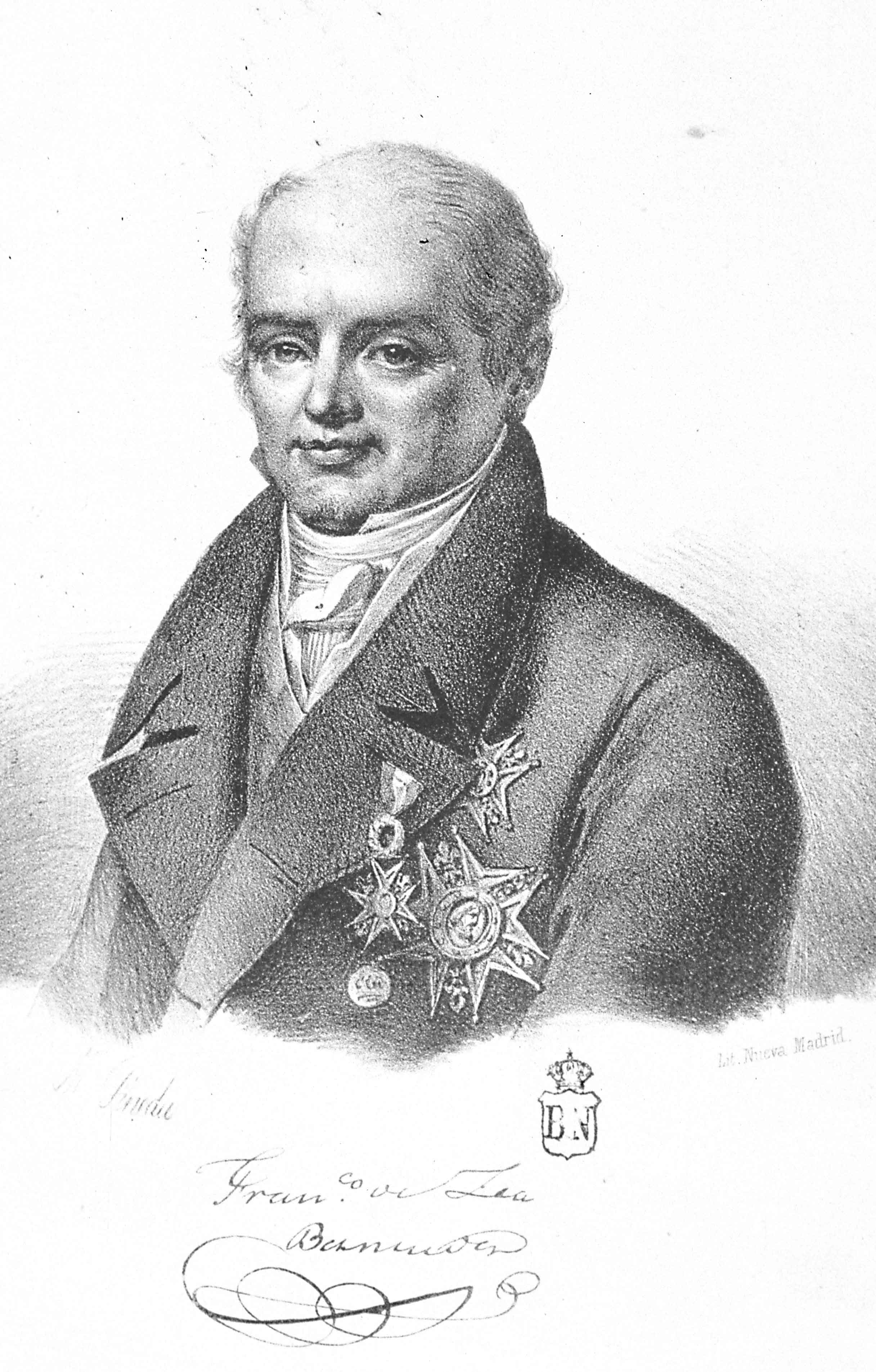|
Aduaneros
The (lit. "customs officers") were a special military force created by Tomás de Zumalacárregui during the First Carlist War. They were entrusted with the levying of revenue for various consumer goods. During the first years of the war, they prohibited the export and import of goods to isolated barracks and fortified villages that had sided with the Liberal ( Isabeline) cause. The aduaneros' uniform included corduroy pants, jacket, and vest; a flesh-colored corset; blue beret with white tassel; gray cloak; and , a sort of light sandal made of hemp. Their weapons included a bandolier and carbine. Mariano José de Larra wrote a satirical article about them called ("No one can pass without speaking first with the doorman"). Sources * Álbum de las tropas carlistas del ejército del norte. Madrid, sin fecha. (184?) * Juan Antonio Zaratiegui. Vida y hechos de don Tomás de Zumalacárregui. San Sebastián, 1946. * C.F. Henningsen. Campaña de doce meses en Navarra ... [...More Info...] [...Related Items...] OR: [Wikipedia] [Google] [Baidu] |
Aduaneros
The (lit. "customs officers") were a special military force created by Tomás de Zumalacárregui during the First Carlist War. They were entrusted with the levying of revenue for various consumer goods. During the first years of the war, they prohibited the export and import of goods to isolated barracks and fortified villages that had sided with the Liberal ( Isabeline) cause. The aduaneros' uniform included corduroy pants, jacket, and vest; a flesh-colored corset; blue beret with white tassel; gray cloak; and , a sort of light sandal made of hemp. Their weapons included a bandolier and carbine. Mariano José de Larra wrote a satirical article about them called ("No one can pass without speaking first with the doorman"). Sources * Álbum de las tropas carlistas del ejército del norte. Madrid, sin fecha. (184?) * Juan Antonio Zaratiegui. Vida y hechos de don Tomás de Zumalacárregui. San Sebastián, 1946. * C.F. Henningsen. Campaña de doce meses en Navarra ... [...More Info...] [...Related Items...] OR: [Wikipedia] [Google] [Baidu] |
Tomás De Zumalacárregui
Tomás de Zumalacárregui e Imaz (Basque: Tomas Zumalakarregi Imatz; 29 December 178824 June 1835), known among his troops as "Uncle Tomás", was a Spanish Basque officer who lead the Carlist faction as Captain general of the Army during the First Carlist War. He was occasionally nicknamed the "Wolf of the Amezcoas", making reference to his famous military victory in the region of Navarre. Zumalacárregui is often credited as the inventor of Spanish omelette (or ''tortilla de patatas''), which he elaborated during the Siege of Bilbao, as a simple, fast and nutritious dish with which to satisfy the hardships of the Carlist Army. In search of nourishment, he came across a poor housewife who had nothing other than eggs, onion and potatoes. When he mixed it up, he liked the end result and fed it to his starving troops. It is said that after this, the tortilla became incredibly popular throughout the rest of the First Carlist War, and is now one of the most renowned dishes in the wo ... [...More Info...] [...Related Items...] OR: [Wikipedia] [Google] [Baidu] |
First Carlist War
The First Carlist War was a civil war in Spain from 1833 to 1840, the first of three Carlist Wars. It was fought between two factions over the succession to the throne and the nature of the Spanish monarchy: the conservative and devolutionist supporters of the late king's brother, Carlos de Borbón (or ''Carlos V''), became known as Carlists (''carlistas''), while the progressive and centralist supporters of the regent, Maria Christina, acting for Isabella II of Spain, were called Liberals (''liberales''), ''cristinos'' or ''isabelinos''. It is considered by some authors the largest and most deadly civil war of the period. The Carlist forces were split in three geographically distinct armies: ('North'), and ('Catalonia'), which by and large operated independently from each other. Aside from being a war of succession about the question who the rightful successor to king Ferdinand VII of Spain was, the Carlists’ goal was the return to a traditional monarchy, while the ... [...More Info...] [...Related Items...] OR: [Wikipedia] [Google] [Baidu] |
Military Units And Formations Disestablished In The 1830s
A military, also known collectively as armed forces, is a heavily armed, highly organized force primarily intended for warfare. It is typically authorized and maintained by a sovereign state, with its members identifiable by their distinct military uniform. It may consist of one or more military branches such as an army, navy, air force, space force, marines, or coast guard. The main task of the military is usually defined as defence of the state and its interests against external armed threats. In broad usage, the terms ''armed forces'' and ''military'' are often treated as synonymous, although in technical usage a distinction is sometimes made in which a country's armed forces may include both its military and other paramilitary forces. There are various forms of irregular military forces, not belonging to a recognized state; though they share many attributes with regular military forces, they are less often referred to as simply ''military''. A nation's military may ... [...More Info...] [...Related Items...] OR: [Wikipedia] [Google] [Baidu] |

